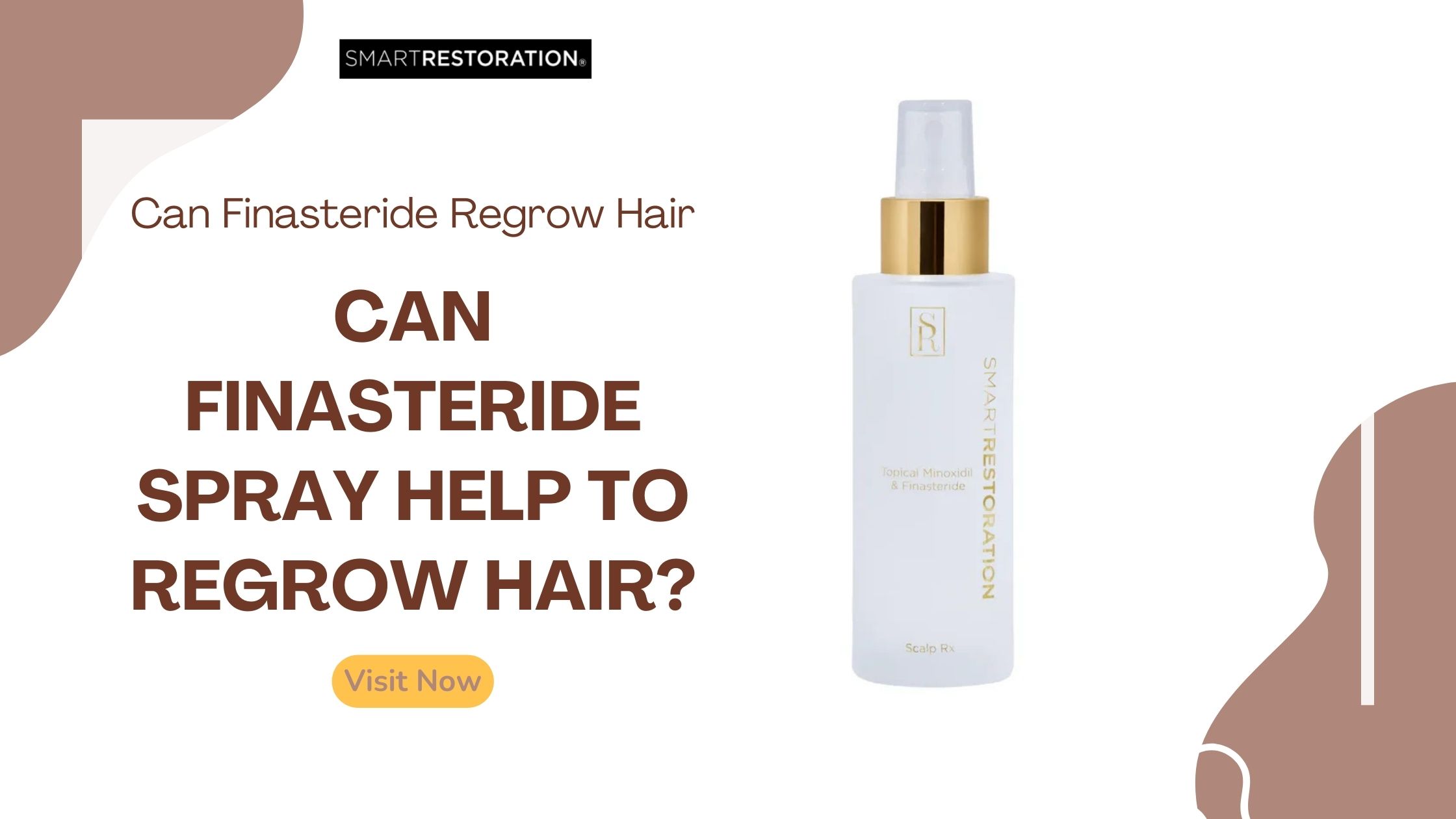Can Finasteride Spray Help to Regrow Hair?
Hair loss is a common concern that affects millions of men worldwide. With so many treatments available—from shampoos to supplements—it can be overwhelming to find a solution that actually works. One of the most researched and clinically backed options is Finasteride, a treatment long known in pill form and now available as a topical spray. Many wonder, can Finasteride regrow hair effectively when applied topically? In this article, we’ll explore how it works, how it compares to oral Finasteride, and what kind of results users can expect.
Smart Restoration, a leading brand in advanced hair care solutions, offers a Finasteride Spray designed for targeted application. But how effective is it really? Let’s take a deeper look.
Understanding Hair Loss and DHT
To understand how Finasteride works, it’s important to know the root cause of most male pattern baldness—DHT, or dihydrotestosterone. This hormone is a byproduct of testosterone that binds to hair follicles, cause them to shrink over time. As the follicles shrink, the hair becomes thinner and eventually stops growing altogether.
Most hair regrowth treatments aim to reduce the impact of DHT or stimulate follicle activity. Finasteride, in particular, is known for its ability to inhibit the enzyme 5-alpha-reductase, which is converts testosterone into DHT. By blocking this enzyme, Finasteride lowers DHT levels and helps prevent further hair loss.
What Is Finasteride Spray?
Finasteride spray is a topical formulation of the well-known DHT-blocker. Instead of ingesting a pill, users apply the spray directly to the scalp, targeting areas of thinning or receding hair. This method offers several benefits, including localized action and potentially fewer systemic effects compared to oral Finasteride.
Unlike the oral version, which circulates through your bloodstream, topical Finasteride works at the site where hair loss occurs. It make it a suitable alternative for individuals concerned about sexual or hormonal side effects sometimes associated with the oral form.
Can Finasteride Regrow Hair?
The question many people ask is: can Finasteride regrow hair—and more specifically, can the spray version deliver the same benefits as the pill?
The answer is promising but requires realistic expectations. Finasteride is most effective at slowing or stopping further hair loss rather than regrowing a full head of hair from baldness. However, many users experience noticeable improvements in hair density and thickness, especially in the early stages of hair thinning.
Clinical studies on both oral and topical Finasteride have shown that the treatment can lead to partial regrowth in areas like the crown and mid-scalp. Some men even report a reversal of miniaturization—the process where hair becomes finer before disappearing—leading to stronger, healthier strands.
Topical formulations like Finasteride spray are becoming increasingly popular because they allow users to target problem areas directly, delivering the active ingredient exactly where it’s needed.
Benefits of Finasteride Spray
Here are some of the key benefits that make Finasteride spray an attractive option for those experiencing hair loss:
- Localized Treatment: The spray delivers the active ingredient directly to affected areas, which may reduce systemic absorption and side effects.
- Easy Application: Sprays are typically easy to apply once or twice daily as part of your grooming routine.
- Backed by Research: Early studies and anecdotal reports support its ability to improve hair thickness and slow down further hair loss.
Who Should Use Finasteride Spray?
Finasteride spray is best suited for men in the early stages of hair thinning. Those who still have active follicles—even if the hair is fine or sparse—are more likely to benefit from treatment. It’s not a magic solution for bald patches where follicles are no longer active, but it can help maintain and strengthen existing hair.
It’s also ideal for individuals who are hesitant to take oral medications or have experienced side effects with Finasteride pills in the past.
Hair loss treatment, consistency is key. Finasteride spray must be used regularly, and results typically noticeable after 3 to 6 months of continuous use, with optimal outcomes after 12 months or more.
How Does It Compare to Minoxidil?
Minoxidil is another well-known topical treatment, often used alongside Finasteride. While Minoxidil helps stimulate hair follicles and promote growth by increasing blood flow, Finasteride works by preventing further loss through DHT reduction.
Using both together can offer a complementary approach—Minoxidil to encourage regrowth and Finasteride to preserve existing hair. Many hair care specialists recommend this combination for more comprehensive results.
Conclusion
can Finasteride spray help to regrow hair? The answer is yes—but with realistic expectations. While it’s not a cure for baldness, Finasteride spray has been shown to slow down hair loss and improve hair density, particularly in men experiencing early thinning.
If you’re considering Finasteride spray as part of your hair care routine, Smart Restoration offers a high-quality formulation designed for effective, localized treatment. With consistent use and a bit of patience, you may find that Finasteride spray helps you regain not just your hair—but your confidence too.
Let me know if you’d like a shortened version for product pages, meta descriptions, or social media content!

